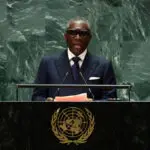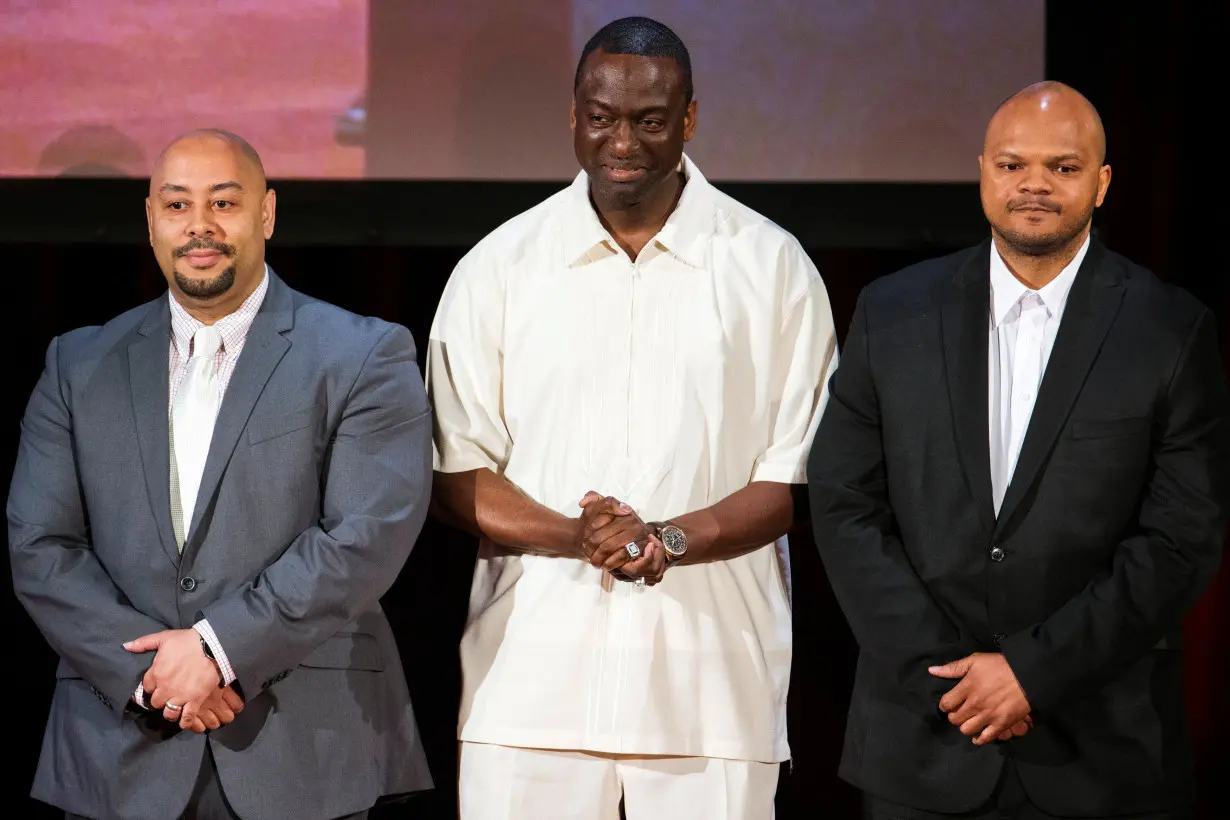(Reuters) - Yusef Salaam, one of five Black and Latino men wrongly imprisoned as teenagers in the notorious Central Park jogger rape case in 1989, won a seat on the New York City council in Tuesday's elections, according to unofficial results from the city's elections board.
Salaam was chosen as the Democratic candidate in June's primary election and ran unopposed in Tuesday's race to represent a central district in Manhattan's Harlem neighborhood.
His city council victory came 20 years after he and the other four men, known as the "Central Park Five," sued New York City for wrongful conviction and violation of their civil rights, eventually winning a $41 settlement in 2014.
Salaam invoked his nightmarish ordeal in his bid for city council. "My story, our story, continues to play out in communities all over this country," his campaign website said.
The case spurred debate over systemic racial bias in the U.S. criminal justice system, and garnered renewed attention when Netflix released a documentary series about the incident in 2019.
Salaam and the other four men were between 14 and 16 years old when investment banker Trisha Meili, who was white, was raped and almost killed in Central Park in 1989.
All five confessed to the crime after long interrogations, but each of them later recanted their statements, saying they had been coerced by police officers.
After serving between five and 13 years in prison, the boys were exonerated when the true attacker confessed and was linked to the crime by DNA evidence.
Former President Donald Trump, then a real estate developer in New York, publicly denounced the teenagers and took out a full-page ad in several of the city's newspapers calling for the reinstatement of the death penalty.
Trump refused to recant his incorrect claims about the case when a reporter asked him about them in 2019, saying, "You have people on both sides of that. They admitted their guilt."
Referring to Trump now facing multiple criminal trials, Salaam in an interview with the New York Times on Tuesday night said: “Karma is real, and we have to remember that.”
(Reporting by Julia Harte; Editing by Bill Berkrot)

 Santa Cruz County ballot errors impact more than 1,100 voters
Santa Cruz County ballot errors impact more than 1,100 voters
 Strike at Boeing was part of a new era of labor activism long in decline at US work places
Strike at Boeing was part of a new era of labor activism long in decline at US work places
 Google defeats lawsuit over gift card fraud
Google defeats lawsuit over gift card fraud
 Delay in Chile mining permits a serious problem, says local head of Freeport
Delay in Chile mining permits a serious problem, says local head of Freeport
 Equatorial Guinea orders crackdown on sex in government offices after videos leaked
Equatorial Guinea orders crackdown on sex in government offices after videos leaked
 US needs to crack down on Chinese chipmaker SMIC, Republican lawmaker says
US needs to crack down on Chinese chipmaker SMIC, Republican lawmaker says
 Malaysia central bank set to manage market volatility, monitoring US election
Malaysia central bank set to manage market volatility, monitoring US election
 Book Review: 'The Name of This Band is R.E.M.' is a vivid journey through the rock band's history
Book Review: 'The Name of This Band is R.E.M.' is a vivid journey through the rock band's history
 Rare letter signed by Founding Fathers expected to fetch $1 million at auction
Rare letter signed by Founding Fathers expected to fetch $1 million at auction
 Jerry Jones says Dak Prescott likely out at least 4 games with IR move because of hamstring injury
Jerry Jones says Dak Prescott likely out at least 4 games with IR move because of hamstring injury

